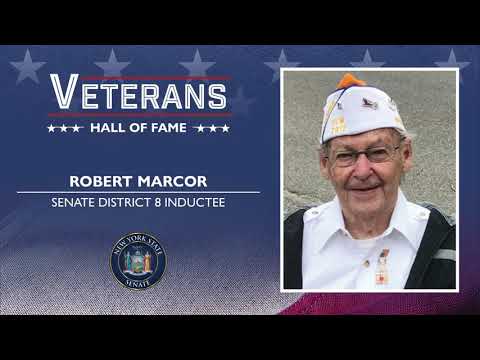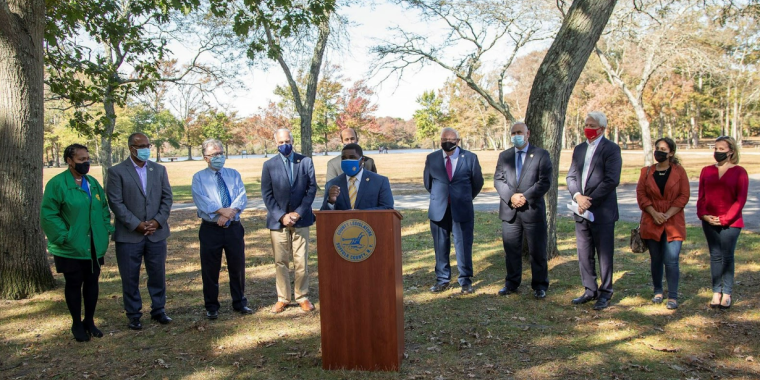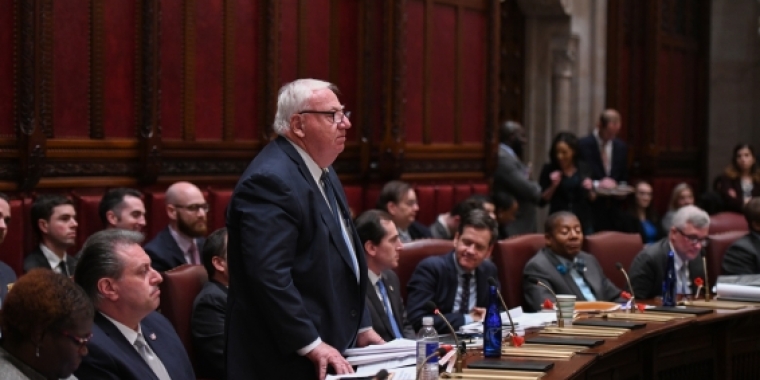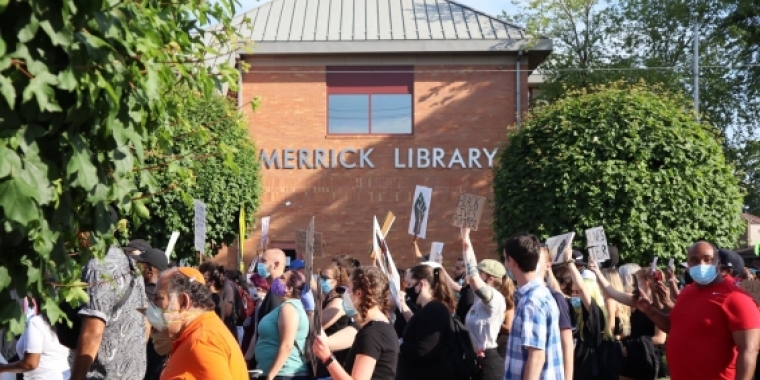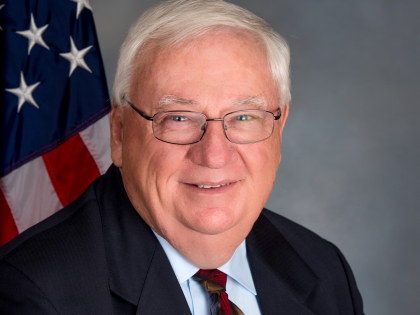
Joseph P. Dwyer Veterans’ Program Gets $3.7 Million to Continue Services
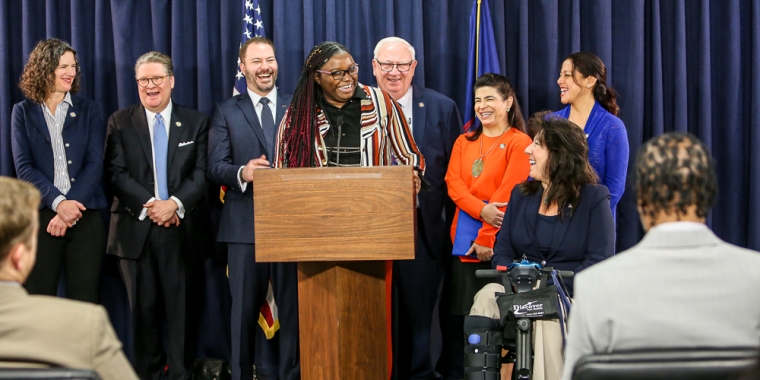
Ashama McKenzie: U.S. Navy Veteran, member and beneficiary of Dwyer Project, tells her story yesterday at a press conference given at the NY State Senate to highlight the importance of this program.
The 2019 New York State budget, totaling $175 billion, left many or ganizations, schools and fire depart ments without requested funding. Many of these budget cuts also directly impacted services offered to local veterans.
Local legislators, including 8th District Senator John E. Brooks, dedicated their time and effort to ensur ing that the funds of many affected veteran programs were restored, as well as increased. Of primary focus was the Joseph P. Dwyer Veteran Peer Support Project, named to hon or the memory of an Army medic from Mount Sinai who served in Iraq. An image of Private First Class Joseph Dwyer cradling a frightened child became an early icon of the Iraq War.
The peer-to-peer program was established to support veterans fac ing the challenges of Post-Traumatic Stress Disorder (PTSD) and Trau matic Brain Injury (TBI). PFC Dwyer personally battled PTSD, a condition associated with sleeplessness, para noia, extreme rage, severe depres sion, social isolation and suicidal thoughts.
“Peer-to-peer should also be un derstood as vet-to-vet and it is important to note that all of the veterans who participate do so vol untarily,” said Brooks. “Who knows the traumatic experiences of a vet eran better than a fellow veteran?”
After much negotiation, $3.7 mil lion was restored to the Dwyer Pro gram in the budget that went into effect April 1. In addition, $300,000 was also added to allow for program expansion into New York City.
Dwyer Program Director Marcelle Leis says that many participating veterans were unsettled by the pos sibility of cut funding.
“They feared a loss of social sup port that they have found to be ex tremely helpful in their post-war lives,” said Leis.
County Executive Steve Bellone credits the Dwyer Program with helping more than 10,000 former military per sonnel with psychological disorders associated with service. “This model veterans program has a proven track record that has no doubt saved lives across the state,” said Bellone.
A unique aspect to the program is that it sup ports all veterans, regardless of their discharge status. Many veterans who were not formally, honorably discharged are excluded from VA benefits. Additionally, Leis says that the program has been adjusted to better accommodate the changing population of veterans.
“The original intent of the program was peer support in a group setting with one-on-one intervention when needed,” said Leis. “We’ve found that the younger generation of veterans returning from war does not have the time or interest in sharing their experiences in a group setting. Due to this, we have adjusted our resources to offer more one-on-one counseling.
We have also found an increase in the complex ity of mental health issues and substance use of younger, returning veterans. Many self-medicate in response to injuries and PTSD,” said Leis. “All peer mentors are required to attend training, in cluding suicide prevention and intervention, to best meet the needs of these individuals.” The Dwyer Program was launched in 2012 as a pilot partnership between the Suffolk County United Veterans program and the Suffolk County Veterans Service Agency. Now, the program can be found in 24 counties across NYS.
“Suffolk County has the largest veteran popula tion in New York, with Nassau County close behind,” said Brooks. “The success of the program in such a large population supports the idea that the Dwyer Program should be expanded nationally to support the mental health of all our brave men and women returning from war,” said Brooks. Brooks, the chairman of Committee on Vet erans, Homeland Security and Military Affairs, served in the National Guard as a medic for six years.
“Our veterans are worthy of respect and grati tude. As a legislator, I will ensure that they are guaranteed every benefit they deserve,” said Brooks. “In the near future, I intend to tour the five state veteran facilities with the new Director of Veteran Affairs, Commissioner James D. Mc Donough Jr., to ensure adequate conditions and resources. We would also like to see a state veteran’s cemetery established in the near future as well.”
With respect to current veteran-related legis lation, Senator Brooks said that a bill exists to redefine the term ‘veteran,’ clearing any misun derstanding and allowing for the recognition of those in the Reserves and military training. Brooks said that there is also a Senate-approved tax relief proposal for active duty service mem bers; the Assembly is considering the legislation now.
“I believe in keeping politics out of veteran’s af fairs,” said Brooks. “At the end of the day, it is really about doing what is right for a population of people who put their lives on the line for the freedoms we enjoy every day.”
“Service members have a sense of identity when they wake up each day and see themselves in uni form,” said Leis. “This identity is often lost when they reenter the community. Our program helps these men and women find their purpose and identity when they return.”
More information regarding the Dwyer Proj ect can be found on their website mhaw.org/programs/scuv/dwyer-project/. Additionally, program coordinators can be reached at 631- 853-8345, or by email at vetspeertopeer@suffolk countyny.gov.
